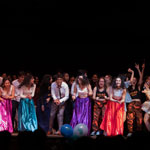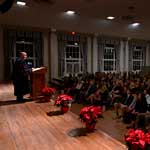
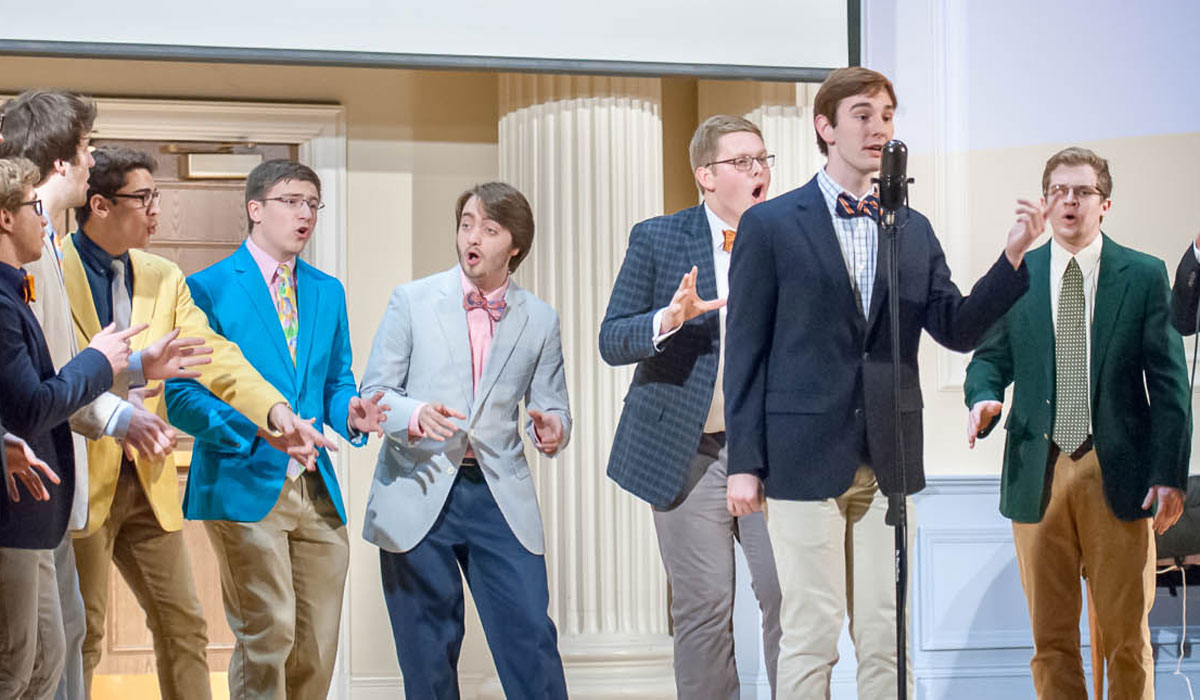
When Associate Prof. of Music Brent Talbot joined Gettysburg College as the Coordinator of Music Education at the Sunderman Conservatory of Music in 2010 he was asked to be faculty advisor to the all-male a cappella group Drop the Octave (DTO). Before the pandemic made singing in groups a public health concern, DTO performed pop songs everywhere from the Musselman Library to the President’s holiday party, often clad in multi-colored blazers—polka dots, plaid, pastels, or even in the pattern of the American flag.
DTO, and other Gettysburg groups like Four Scores and Upscale, are part of a longstanding tradition. Collegiate a cappella groups are wildly popular on campuses across the United States, mostly comprised of and operated by students who sing unaccompanied by musical instruments. For Talbot, a classically trained musician and performer, this type of recreational, amateur musicmaking has long fascinated him, raising questions about how this loosely affiliated college activity impacts its participants, has larger social implications, and contributes to academia’s understanding of what it means to be a musician.
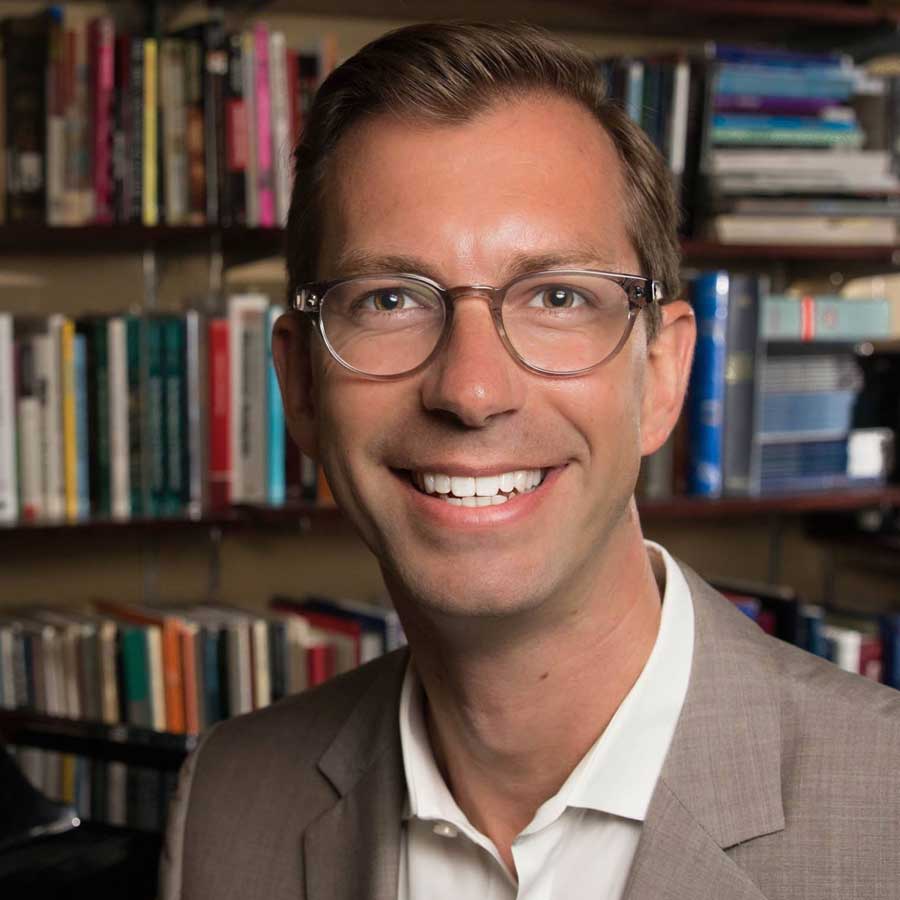
Talbot is no longer DTO’s faculty adviser, but the a cappella groups at Gettysburg College (and many others) feature in his new book co-authored with Roger Mantie of the University of Toronto: Education, Music, and the Lives of Undergraduates: Collegiate A Cappella and the Pursuit of Happiness. The foreword is written by Mickey Rapkin, the author of Pitch Perfect, the book on which the popular musical comedy trilogy about collegiate a cappella is based.
Talbot and Mantie’s book started as an idea for a short journal article, a collaboration based on a shared curiosity about amateur musicmaking and its intersection with formal music education. It grew into a labor of love undertaken over the course of nine years. “We just kept finding more layers to peel,” explains Talbot. The book unfurls over eight chapters, examining how those involved with collegiate a cappella “make sense” of recreational musicmaking within the context of their educational experience and how they place it within the broader contexts of their lives. It also delves into participants’ motivations, social bonds, and how a cappella sheds light on issues of gender, sexuality, diversity, and class.
“The more time we spent researching, the more we realized that a cappella is representative of the many issues found in school music programs surrounding gender, sexuality, race, and class and that all these things intersect to create and perpetuate various hierarchies,” explains Talbot. One example he raised was the male preference to be accepted into an all-male a cappella group over a co-ed group. For women auditioning, the preference also leaned towards “where the males were,” says Talbot.
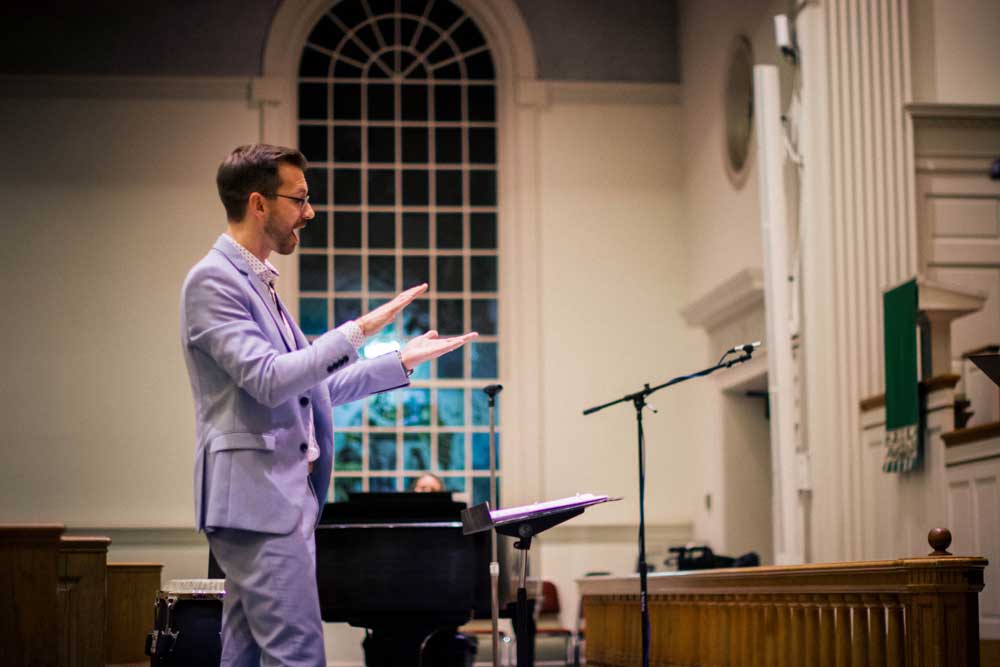
While male groups tend to be more sought after, issues of masculinity are still at play within singing at large, says Talbot. “On the one hand, male singing has often been mis-associated with stereotypes of being gay, while on the other hand, within a cappella, male singers are often seen as these weird unicorns with a strange kind of stardom and fanbase of both women and gay men.”
In retrospective interviews with Talbot, a cappella alumni who are LGBTQ expressed that they often didn’t feel comfortable coming out to their group because of the hyper-gendered nature of a cappella. “Historically the groups have been quite heteronormative. The all-male group often partied with the all-female group, members of the co-ed group often hooked up... There's a whole kind of social and sexual element to the a cappella world.”
Talbot’s interest in collegiate a cappella harkens back to his own undergraduate years at Indiana University, home to Straight No Chaser, a popular group that has 23 million views on YouTube, multiple published albums, and an array of awards to their credit. In the preface of the book, Talbot writes that he “observed firsthand the obsessed fan-following that these groups generated,” and “as a music education major, I was curious as to how this student-led musicmaking experience could pack auditoriums on campus, while some of the most outstanding [formal] musicians at one of the top music schools in the world were struggling to fill recital halls.”
That interest reached its apex when Talbot became faculty adviser to DTO and ultimately wrestled with getting involved as a faculty member in what was typically a student-led enterprise. As explained in the book, collegiate a cappella emerged in the early 20th century as a “pushback against the ‘formal’ music offerings on campus led by trained ‘conductors’ who invariably imposed their conception of ‘right’ music done the right way.” In some ways, Talbot’s direct involvement in the group was antithetical to the original intentions of a cappella.
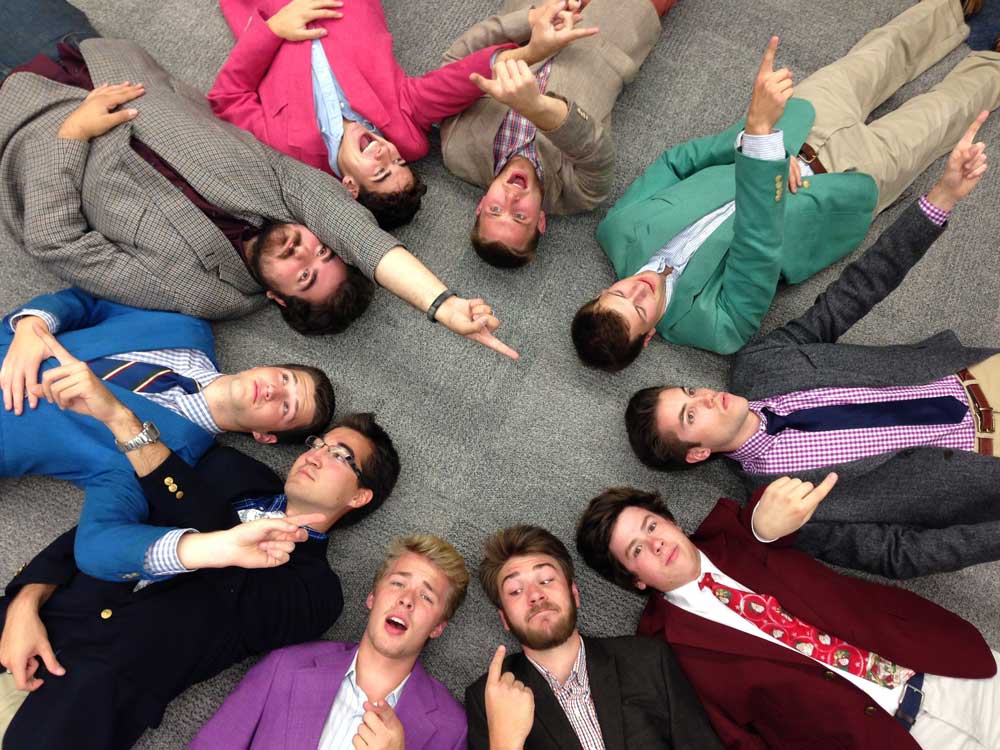
Talbot explains, “That tension created some awkward moments because, as the research in our book shows, students generally do a cappella primarily for the social reasons. Many of them have a passion and love for musicmaking but the primary reason is the social bonds that are created through the musicmaking. So, the notion of agency and autonomy is important, and to have a faculty advisor ‘sticking their nose in’ probably made it feel like a more formalized experience.” As is so aptly stated in the book’s preface, “Collegiate a cappella was, and is, about the empowered student voice.”
Nevertheless, Talbot’s involvement with DTO was fortuitous in that it fueled his research and informed a book he hopes will have implications for music educators, partly because it highlights how formal institutional involvement and attitudes towards amateur musicmaking may be counterproductive to lifelong musicmaking.
Much of the book is based on interviews with former a cappella participants and a striking, but common refrain from alumni and current singers is, “I’m not a musician.” “We heard that from a cappella singers who are literally making music right now,” says Talbot. “To them, a musician means somebody studying music at Juilliard or going on to work in a major orchestra. Our book works towards expanding the definition of who is labeled a ‘musician’ and challenges the unspoken language in formalized music education that sends signals to people that they’re ‘not musicians’—inadvertently creating unarticulated barriers to lifelong musicmaking.”
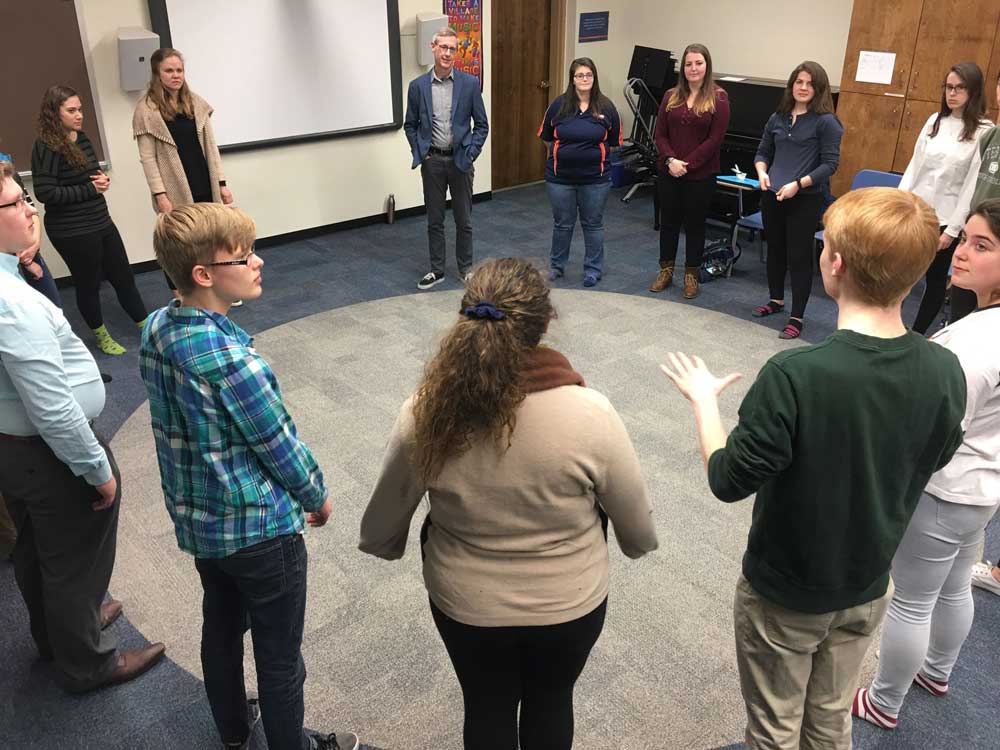
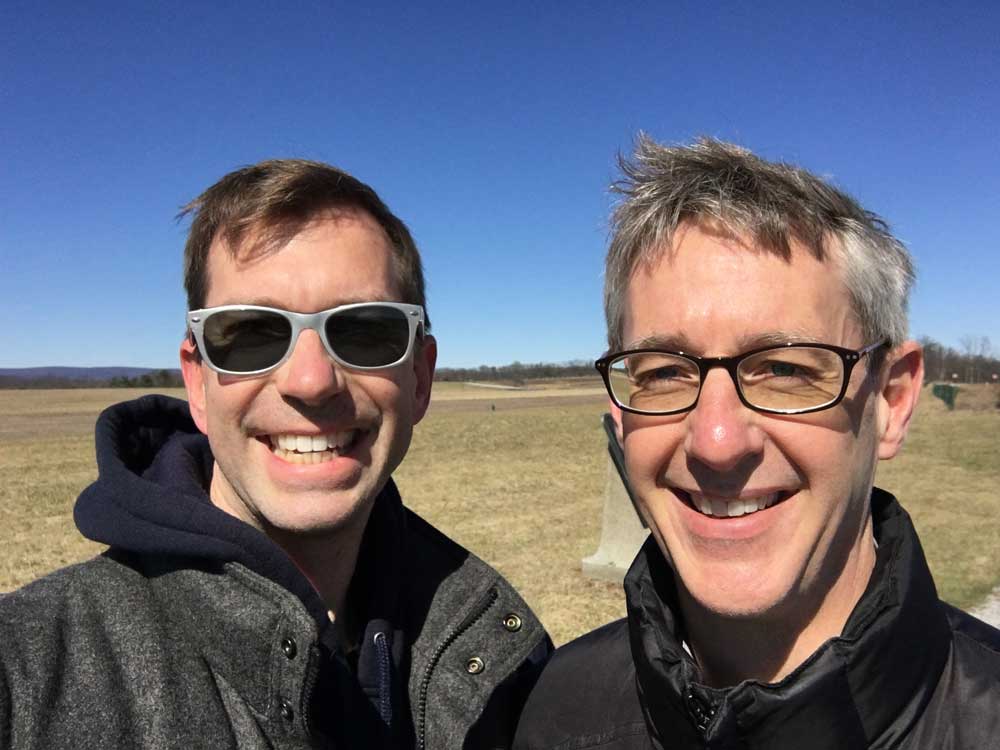
One thing is made clear through the book’s interviews with a cappella alumni from twenty-four groups at fourteen schools across the country: while some participants may not consider themselves musicians or continue to sing beyond graduation, their a cappella experiences were formative. Many expressed deep nostalgia and saw the groups as critical to their development of confidence and social skills, as well as the catalyst for lifelong friendships. Those strong social bonds, forged over parties as much as performances, persisted, and oftentimes equipped a cappella participants with the social and cultural capital to advance in their careers, according to Talbot and Mantie’s research.
“There is a kind of social status and capital that is accrued by being associated with an a cappella group. Most of the participants we interviewed were not music majors; they were in economics or finance. So, when we talked to them six or seven years later, we found a few leading departments in Fortune 500 companies. Our informants described listing a cappella on their resumes and using it as a conversation starter. Some explained they even got their jobs as a result of an a cappella connection,” says Talbot, whose book delves deep into how socio-economics, heteronormativity, and privilege are perpetuated through a cappella.
Over the past year, the pandemic has silenced the voices of a cappella groups across the country, but Talbot is optimistic that the bonds built through song will soon return. In the meantime, he hopes Education, Music, and the Lives of Undergraduates: Collegiate A Cappella and the Pursuit of Happiness will help music teachers and professors consider ways to better promote “the joys and benefits of lifelong musicianship.”
Learn more about studying music at the Sunderman Conservatory of Music at Gettysburg College.
By Katelyn Silva
Photos by Peter Francis ’21, Frank B. Napoli, and courtesy of Brent Talbot
Posted: 04/07/21

